2017
Brazilian Bioenergy Science and Technology Conference
October 17 – October 19, 2017. Campos do Jordão, Brazil
bbest.org.br/2017
2016
SCOPE Mini RAP workshop on Bioenergy & Sustainability: Latin America and Africa
October 31 – November 02, 2016. FAPESP – São Paulo, Brazil
fapesp.br/eventos/scope2016
BIO World Congress on Industrial Biotechnology
April 17 – April 20, 2016. San Diego, USA
bio.org/press-release/2016-bio-world-congress-industrial-biotechnology-closed-record-number-partnering
- Track: Growing Global Biobased Markets
- Time: 2016-04-18 10:30 – 2016-04-18 12:00
- Title: 1.2 Social Development Through Biobased Innovation
Panelists:
- Heather Youngs, University of California, Berkeley (Moderator)
- Thomas Foust, NREL
- Patricia Osseweijer, BE-Basic
- Luuk van der Wielen, BE-Basic and TU Delft
- Jeremy Woods, Imperial College London
2015
SCOPE-FAPESP Bioenergy & Sustainability Symposium
September 28, 2015. World Bank, Washington DC, USA
Organized by SCOPE and FAPESP

| 1:00 PM | Registration for EXTERNAL PARTICIPANTS ONLY |
| 2:00 PM | Opening |
| Welcome & Context for the World Bank: Gevorg Sargsyan (Program Manager & Global Lead, Energy & Extractives, WB), Erick Fernandes (Adviser, Agriculture WB). Overview of SCOPE Bioenergy & Sustainability report: Carlos Henrique de Brito Cruz (Science Director – FAPESP), Jon Samseth (SCOPE), Glaucia Mendes Souza (BIOEN-FAPESP). | |
| 2:10 PM | Keynote: Bioenergy & Sustainability – Carlos Henrique de Brito Cruz |
| 2:30 PM | Discussion session 1: Clean Energy and the environment (Biomass supply, food, water & biodiversity tradeoffs, multifunctional landscapes) |
| 3:15 PM | Coffee break |
| 3:30 PM | Discussion session 2: Sustainable development and innovation in bioenergy (Biofuels futures in a low fossil fuel price world? Bioenergy knowledge gaps for scaling up emerging techs and innovation; Financing and technical assistance needs for scaling up in developing countries) |
| 4:30 PM | Conclusions & Closing remarks |
FAPESP-SCOPE Bioenergy & Sustainability report: Key findings and recommendations
June 17, 2015. Committee of the Regions, 7th floor (JDE 70), Brussels, Belgium
European Union Sustainable Energy Week
A SCOPE rapid assessment process project developed with FAPESP will publish Bioenergy and Sustainability this spring. The report provides a comprehensive analysis of the current bioenergy landscape, technologies and practices with a critical review of their impacts, based on an extensive evaluation of current bioenergy resources status, systems and markets, potential sustainable expansion and wider adoption of this renewable resource. This assessment is a collective effort with contributions from more than 130 experts from 24 countries, encompassing scientific studies on topics ranging from land use and feedstocks, to technologies, impacts, benefits and policy.The authors consider bioenergy expansion and how it impacts on energy, food, environmental and climate security, sustainable development and the innovation nexus in both developed and developing regions. The report also highlights numbers, solutions and gaps in knowledge and suggests what science is needed to maximise bioenergy benefits.
Aims
The workshop will present and discuss the key findings and possible implications for policy, communication and innovation strategies for sustainable bioenergy. It will focus on two important and crosscutting issues related to governance and strategic development: supply chain and environmental security, and sustainable development and innovation.
Participants
The target audience will bring together multiple domain stakeholders, including policy makers, representatives from civil and industrial sectors and the media, to discuss scientific findings related to sustainable bioenergy.
The proposed workshop is a joint interdisciplinary effort led by an international non-governmental organisation of natural and social scientists (SCOPE), a research foundation (FAPESP) and its research programmes on bioenergy (Bioen), climate change (PFMCG) and biodiversity (Biota), and an international public-private partnership that develops industrial bio-based solutions for building a sustainable society (BE-Basic Foundation).
Speakers

Jon Samseth
Professor of physics affiliated with the Norwegian institutions: Oslo and Akershus University College of Applied Sciences, SINTEF and NTNU (Norwegian University of Science and Technology)
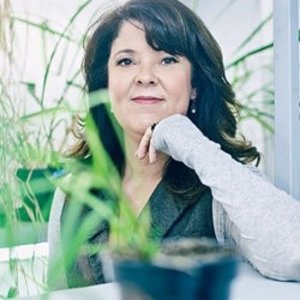
Glaucia Mendes Souza
President of the FAPESP Bioenergy Reshe activities of her group focus on the Transcriptome analysis, generation of transgenic plants and studies related to the investigation of regulatory and signaling networks
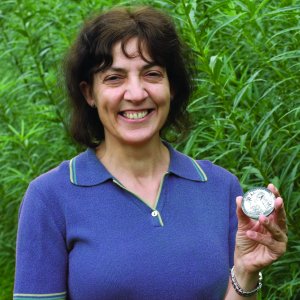
Dr Angela Karp
Scientific Director of the Rothamsted Centre for Bioenergy and Climate Change
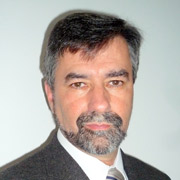
Dr Paulo Artaxo
Professor in and head of the Applied Physics Department of the USP Institute of Physics
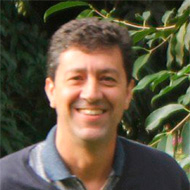
Dr Luciano Martins Verdade
Associate professor in the Center of Nuclear Energy in Agriculture of the USP

Dr Patricia Osseweijer
Full professor Science Communication and Group leader Biotechnology and Society, Department of Biotechnology, Faculty of Applied Sciences, Delft University of Technology
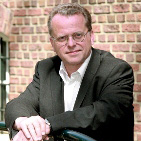
Luuk van der Wielen
Prof. van der Wielen is Distinguished Professor for Biobased Economy of TUD and Full Professor at it’s Dept of Biotechnology at Delft, NL where he heads the Bioprocess Engineering Section

Dr Jeremy Woods
Lecturer in bioenergy at Imperial College London working on the interplay between development, land-use and the sustainable use of natural resources
SCOPE Volume Launch Symposium
April 14th, 2015. FAPESP. Rua Pio XI, 1500 – São Paulo, Brazil
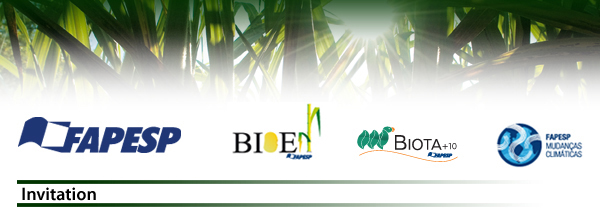
The São Paulo Research Foundation (FAPESP), through its Research Programs on Bioenergy (BIOEN), Biodiversity (BIOTA) and Global Climate Change (RPGCC), is pleased to invite you to
Bioenergy & Sustainability
a SCOPE series volume
Launching the report of a global assessment of bioenergy sustainability
April 14th, 2015
Venue: FAPESP: Rua Pio XI, 1500 – São Paulo, Brazil
Time: 9h30 to 17h00
Based on over 2,000 references and major studies the report provides a comprehensive analysis of the current bioenergy landscape, technologies and practices with a critical review of their impacts. Considering an extensive evaluation of current bioenergy resources status, systems and markets, potential sustainable expansion and wider adoption of this renewable resource the authors highlight recommendations for policy and deployment of bioenergy options: liquid biofuels, bioelectricity, biogas, heat, bio-based chemicals.
This assessment is a collective effort with contributions from more than 130 experts from 24 countries, encompassing scientific studies ranging from land use and feedstocks, to technologies, impacts, benefits and policy.
The authors considered how bioenergy expansion and its impacts perform on energy, food, environmental and climate security, sustainable development and the innovation nexus in both developed and developing regions. The report also highlights numbers, solutions, gaps in knowledge and suggests the science needed to maximize bioenergy benefits.
Panels included experts from academia, industry and NGOs presenting and discussing the current status and trends in biomass production and its possible implications for policy, communication and innovation strategies for a sustainable future.
The full report will be available as open-access.
For more information, visit: fapesp.br/eventos/scope
2014
2nd Brazilian Bioenergy Science and Technology Conference
October 20 to 24, 2014
2013
Bioenergy and Sustainability: bridging the gaps
SCOPE Rapid Assessment Process Workshop
02-06 December 2013. UNESCO premises, Paris, France
Participants
| Name | Institution | Country | |
|---|---|---|---|
| ARENT | Douglas Arent | National Renewable Energy Laboratory | USA |
| ARTAXO | Paulo Artaxo | Universidade de São Paulo | Brazil |
| BALLESTER | Maria Victoria Ramos Ballester | CENA/PFPMCG | Brazil |
| BATISTELLA | Mateus Batistella | Embrapa | Brazil |
| BRITO CRUZ | Carlos Henrique de Brito Cruz | FAPESP Fundação de Amparo à Pesquisa do Estado de São Paulo | Brazil |
| CANTARELLA | Heitor Cantarella | Agronomic Institute of Campinas/BIOEN | Brazil |
| CHUM | Helena Chum | National Renewable Energy Laboratory | USA |
| CORTEZ | Luis Augusto Barbosa Cortez | UNICAMP | Brazil |
| DIAZ-CHAVEZ | Rocio Diaz-Chavez | Imperial College | UK |
| EL-LAKANY | Hosny El-Lakany | University of British Columbia | Canada |
| ENDRES | Jody Endres | University of Illinois at Urbana-Champaign | USA |
| ESTRADA | Tiago E.M. Duque Estrada | UNICAMP/BIOTA | Brazil |
| FAAIJ | Andre Faaij | Utrecht University | The Netherlands |
| FERNANDES | Erick Fernandes | World Bank | USA |
| FINCHER | Geoff Fincher | University of Adelaide | Australia |
| FOUST | Thomas Foust | National Renewable Energy Laboratory | USA |
| GREENWOOD | Susan Greenwood | SCOPE | France |
| HORTA NOGUEIRA | Luiz Augusto Horta Nogueira | Universidade Federal de Itajubá | Brazil |
| HOYSALA | Chanakya Hoysala | Indian Institute of Science | India |
| HUNTLEY | Brian Huntley | University of Stellenbosch | South Africa |
| JOHNSON | Francis Johnson | Stockholm Environment Institute (SEI) | Sweden |
| KAFFKA | Steve Kaffka | University of California at Davis | USA |
| KARP | Angela Karp | Rothamsted Research | UK |
| LEAL | Manoel Regis L. V. Leal | Laboratório Nacional de Ciência e Tecnologia do Bioetanol | Brazil |
| LONG | Stephen Long | University of Illinois at Urbana-Champaign | USA |
| LYND | Lee Lynd | Dartmouth College | USA |
| MACEDO | Isaias de Carvalho Macedo | Universidade Estadual de Campinas | Brazil |
| MACIEL FILHO | Rubens Maciel Filho | University of Campinas/BIOEN | Brazil |
| MAHAKHANT | Aparat Mahakhant | TISTR | Thailand |
| MASSAFERA | Mariana P. Massafera | University of São Paulo/BIOEN | Brazil |
| MELETTI | Marcelo Meletti | FAPESP | Brazil |
| NASSAR | Andre M. Nassar | Instituto de Estudos do Comércio e Negociações Internacionais | Brazil |
| NIGRO | Francisco E. B. Nigro | Universidade de São Paulo | Brazil |
| OSSEWEIJER | Patricia Osseweijer | Delft University of Technology | The Netherlands |
| OTTO | Martina Otto | UNEP DTIE | France |
| RAVINDRANATH | NH Ravindranath Indian | Institute of Science | India |
| RICHARD | Tom Richard | Pennsylvania State University | USA |
| SADDLER | Jack Saddler | University of British Columbia | Canada |
| SAMSETH | Jon Samseth | HIOA / SINTEF | Norway |
| SEEBALUCK | Vikram Seebaluck | University of Mauritius | Mauritius |
| SOMERVILLE | Chris Somerville | University of California at Berkeley | USA |
| SOUZA | Glaucia Mendes Souza | Universidade de São Paulo | Brazil |
| VAN DER WIELEN | Luuk van der Wielen | BE-Basic | The Netherlands |
| VAN MEIJL | Hans Van Meijl | Wageningen University | The Netherlands |
| VAN SLUYS | Marie-Anne Van Sluys | University of São Paulo/BIOEN | Brazil |
| VERDADE | Luciano M. Verdade | Universidade de São Paulo | Brazil |
| VICTORIA | Reynaldo Victoria | Universidade de São Paulo | Brazil |
| WATSON | Helen Watson | University of KwaZulu-Natal | South Africa |
| WOODS | Jeremy Woods | Imperial College | UK |
| YOUNGS | Heather Youngs | University of California at Berkeley | USA |
Bioenergy & Sustainability: the industry perspective
November 18th, 2013. FAPESP auditorium – Rua Pio XI, 1500. Alto da Lapa, São Paulo/SP
| 9:00 – 9:20 | Opening Ceremony Glaucia M. Souza (BIOEN), Reynaldo Victoria (PFPMCG), Carlos A. Joly (BIOTA), and Carlos Henrique de Brito Cruz (FAPESP) |
| 9:20 – 09:40 | Glaucia M. Souza (BIOEN-FAPESP) SCOPE Bioenergy and Sustainability: bridging the gaps for the sustainable expansion of bioenergy in the world |
| 09:40 – 10:10 | José Goldemberg (IEE-USP) Energy security |
| 10:10 – 10:30 | Discussion |
| 10:30 – 11:00 | Coffee break |
| 11:00 – 11:30 | Paulo Eduardo Artaxo Netto (IF-USP) Environmental and Climate Security |
| 11:30 – 12:00 | Luiz Augusto Horta Nogueira (UNIFEI) Sustainable development & innovation |
| 12:00 – 12:20 | Discussion |
| 12:20 – 14:00 | Lunch |
BIOEN-BIOTA-PFPMCG-SCOPE Joint Workshop on Biofuels & Sustainability
February 26th, 2013. FAPESP’s auditorium (FAPESP, São Paulo / Brazil)



The substitution of fossil fuels requires a thorough analysis of the social, environmental and economic impacts of technologies and practices regarding the sustainable expansion of biofuels production in the world.
The FAPESP Programs BIOEN, BIOTA and PFPMCG are organizing a Joint Workshop on Biofuels & Sustainability in cooperation with SCOPE to produce a set of recommendations from academia, industry, governmental and non-governmental institutions for the sustainable expansion of biofuels.
This workshop will be opening a rapid assessment process for global biofuels sustainability and its implications on policy in the context of local and a global green economy.
Workshop Program
| 8:30 | Reception and Welcome Coffee |
| 9:00 | Opening Ceremony |
| 9:30 | FAPESP environmental programs, BIOEN, BIOTA and Climate Change Carlos Henrique de Brito Cruz (FAPESP, Brazil) |
| 9:55 | What are the real perspectives of renewable energies? José Goldemberg (USP, Brazil) |
| 10:20 | Global sustainable bioenergy: making it work Lee Lynd (Dartmouth University, USA) |
| 10:45 | Why is developing an integrated, whole systems, perspective on land use critical to resolving conflicts between the three global securities: energy, climate and food? Jeremy Woods (Imperial College, UK) |
| 11:10 | Biofuels technology development – Lessons learned Helena Chum (National Renewable Energy Laboratory, USA) |
| 11:35 | Development of lignocellulosic biofuels Chris Somerville (Berkeley University, USA) |
| 12:00 | The potential of biofuels, the need for a biorefinery approach and a review of technologies and co-products Jack N. Saddler (University of British Columbia, Canada) |
| 12:25 – 14:00 | Lunch |
| 14:00 | Global energy and CO2 reduction requirements to 2050 and the role of biofuels Lew Fulton (UC-Davis, USA) |
| 14:25 | Biofuels – South African policy, practice and perspectives Brian Huntley (University of Stellenbosch, South Africa) |
| 14:50 | Birdsview of state-of-the-art scientific understanding on sustainable biomass sourcing Andre P. C. Faaij (Utrecht University, The Netherlands) |
| 15:15 | Break |
| 15:35 | Use of biomass and biofuels in Scandinavian energy systems Jon Samseth (SINTEF, SCOPE Executive Committee, Norway) |
| 16:00 | Implementing sustainable biofuels in a global context Patricia Osseweijer (Delft University, The Netherlands) |
| 16:25 | Why biomass-based cogeneration is potentially the ideal starting point for a sustainable african biofuel industry – case examples from eastern and southern Africa Stephen Karekezi (African Energy Policy Research Network, Kenia) |
